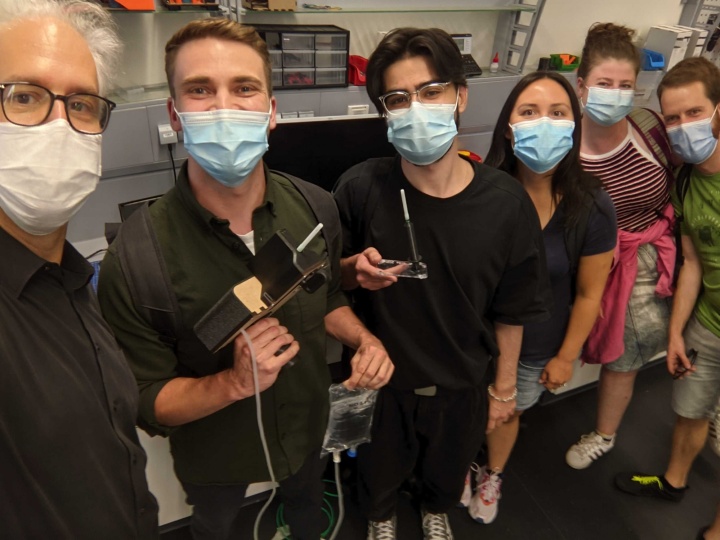In order to stop the coronavirus, more than 50 million people in Germany alone need to be vaccinated, and each of these vaccinations requires at least one needle and one syringe. This adds up to thousands of tons of waste in a short period of time. As part of the course “Practical Development of Medical Devices” (PEMP) at the Institute of Medical Device Technology (headed by Prof. Peter P. Pott), students of medical engineering at the University of Stuttgart developed various prototypes that make it possible to vaccinate with less waste.
The PEMP course, which is a highlight in the study program “Medical Engineering” that is offered jointly by the University of Stuttgart and the Eberhard Karls University Tuebingen, aims to impart practical knowledge and skills in a lecture with accompanying exercise for developing medical devices - in just one semester and right from the beginning.
This year, the task was to develop an automated and low-waste means by which people can be vaccinated against covid-19 as quickly as possible while conserving resources. The result are small handheld devices that hygienically provide needles and precisely administer the required amount of vaccine. Used needles are disposed of silently and in an uncomplicated way - and nothing else. This saves time and money, conserves resources, and protects the environment.
To complete the task, the 37 students occupied themselves with electric motors, sensors, microcontrollers, and mechanics in order to develop a device that is as small and lightweight as possible and can be applied quickly. In addition, they applied methods of project management as well as creative techniques and, in particular, included specific contents of Medical Engineering such as hygiene and regulatory requirements. In the next step, the experiences and findings from the functional tests are to be integrated into the development process before a clinical evaluation can be carried out.
About the study program "Biomedical Engineering"
The study program “Medical Engineering”, which is offered jointly by the University of Stuttgart and the Eberhard Karls University Tuebingen was established in 2010 and has been training about 100 future medical engineers each year since. Both universities provide their expertise in medical science, technology, and the natural sciences. Students can choose from 16 areas of competence - from all areas of medical engineering - according to their inclinations.
Expert Contact:
Prof. Dr. Peter P. Pott, University of Stuttgart, Institute of Medical Device Technology (IMT), phone +49 711 685 68390, E-Mail


